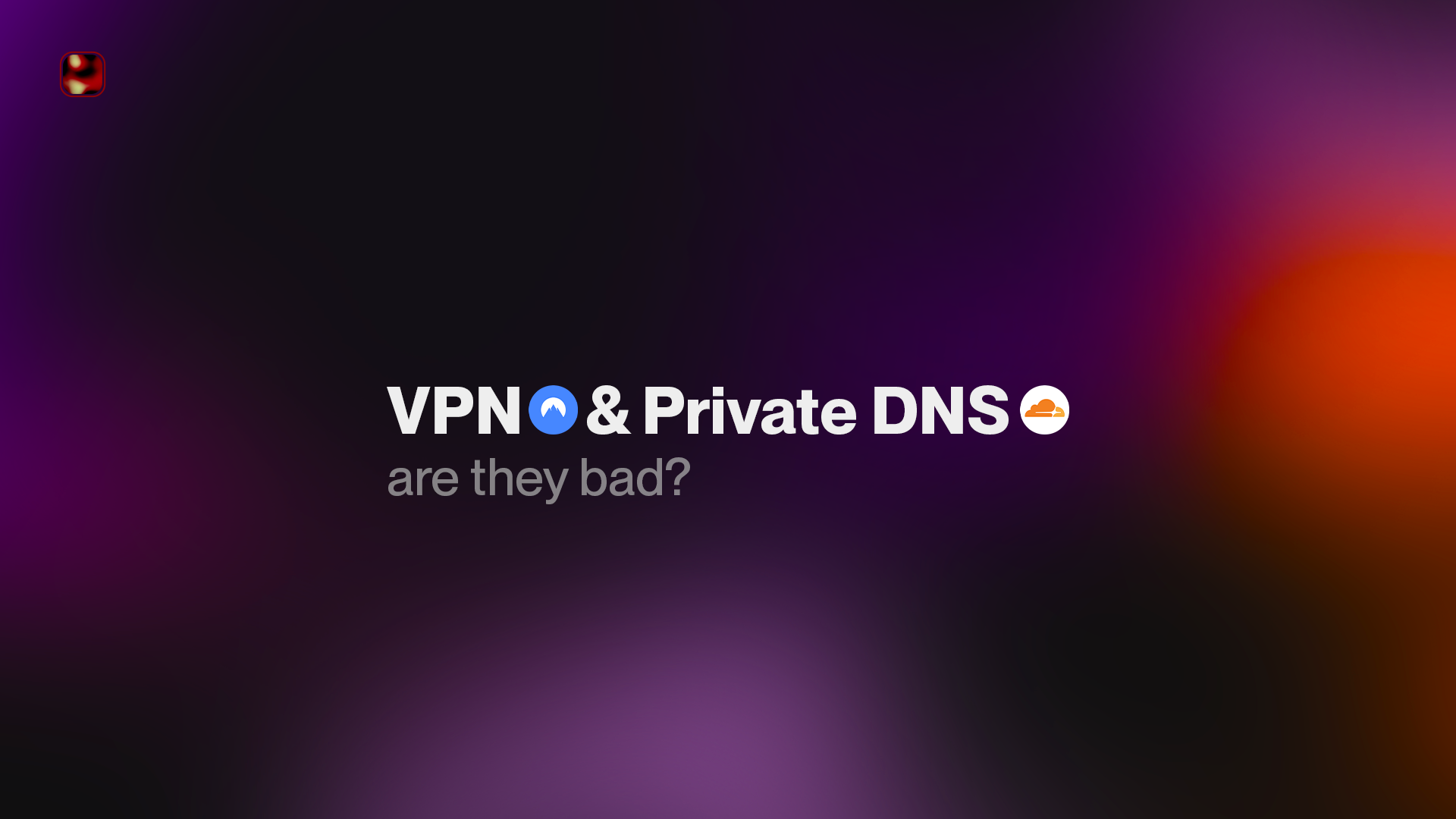
VPNs and Private DNS: Are These Technologies Actually Bad?
(Updated Nov 19, 2023)
In recent times, the terms VPN and Private DNS have become buzzwords, especially in the wake of the TikTok ban in Nepal. Some may raise eyebrows, questioning the legitimacy and safety of these technologies. Let's learn about VPNs and Private DNS to separate fact from fiction and understand whether they’re a good technology or bad.
VPN: Understanding the Basics
VPN, or Virtual Private Network, is a technology that has become synonymous with online security. Contrary to misconceptions, VPNs are not inherently bad; in fact, they serve as a crucial safeguard against cyber threats. The working principle is simple yet effective – a VPN creates a secure, encrypted connection between your device and the internet. This encryption ensures that your online activities remain private and protected from prying eyes.
However, not all VPN services are created equal. Some providers exploit users by offering free services in exchange for watching ads. This seemingly harmless bargain can expose users to vulnerabilities, as the ad-supported model may compromise the very privacy users seek to protect. Choosing a reputable VPN service is key to enjoying the benefits without sacrificing security.
Key features and benefits of VPN include:
-
Encryption: VPNs employ robust encryption protocols such as OpenVPN or IKEv2/IPsec, rendering data unreadable to potential interceptors.
-
Anonymity: By masking your IP address, VPNs enable anonymous browsing, safeguarding your identity and privacy.
-
Bypassing Geo-restrictions: Granting access to restricted content based on geographical location, VPNs are crucial for streaming and accessing region-specific services.
-
Public Wi-Fi Security: VPNs add an extra layer of security, protecting your data from potential threats on unsecured public Wi-Fi networks.
Choosing the Right VPN
Selecting an appropriate VPN service involves considering various factors:
-
Security Protocols: Opt for VPNs that use strong encryption protocols such as OpenVPN or IKEv2/IPsec.
-
Server Locations: More server locations enhance the ability to bypass geo-restrictions and maintain faster connection speeds.
-
No-logs Policy: Prioritise VPN providers with a strict no-logs policy, ensuring they do not store or track your online activities.
-
Device Compatibility: Ensure that the VPN supports the devices and platforms you use, including desktops, laptops, smartphones, and routers.
Among the most recommended VPNs are ExpressVPN, NordVPN, CyberGhost, and my personal favourite Windscribe.
Shady VPNs to avoid:
On the flip side, some VPNs are infamous for compromising user data or even selling it to third parties. Some of the VPNs that are popular for such activities are:
- HolaVPN
- Betternet VPN
- Faceless.me
To stay safe, avoid these services and go for ones with a solid reputation.
Private DNS
Private DNS, like that offered by Cloudflare, Google, and AdGuard, is another technology aimed at enhancing online security. Private DNS works by translating human-readable domain names into IP addresses, facilitating the connection between your device and the internet. Private DNS offers:
-
Privacy: Encrypts DNS queries, preventing unauthorised access to your online activities and shielding your browsing history.
-
Security: Includes features like malware blocking and phishing protection, enhancing defence against online threats.
-
Faster Resolution: Improves domain name resolution speed, leading to faster website loading times.
Take Cloudflare's 1.1.1.1 DNS, for example. It not only speeds up your internet connection but also protects your data from potential threats. While there are numerous advantages to using private DNS, it's essential to note a potential drawback – the reliance on a single DNS provider might lead to a single point of failure.
Combining VPN and Private DNS for Maximum Security
While VPNs and Private DNS serve different purposes, their combination creates a formidable defence against online threats. This collaboration ensures encrypted online activities and protection against potential DNS-related vulnerabilities.